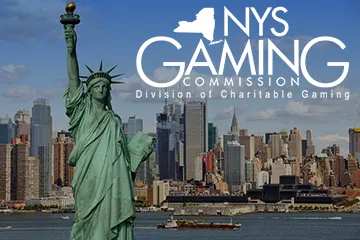 People working for the New York Gaming Commission claim they had to deal with a hostile work environment. They revealed they faced racial discrimination, bullying, political favoritism, and sexual harassment while working for the regulator. According to the workers, such incidents have plagued the workplace for years. The shocking revelations come to light after former employees filed at least four lawsuits against the gambling watchdog, claiming they endured discrimination based on race, gender, disability, and subsequent retaliation.
People working for the New York Gaming Commission claim they had to deal with a hostile work environment. They revealed they faced racial discrimination, bullying, political favoritism, and sexual harassment while working for the regulator. According to the workers, such incidents have plagued the workplace for years. The shocking revelations come to light after former employees filed at least four lawsuits against the gambling watchdog, claiming they endured discrimination based on race, gender, disability, and subsequent retaliation.
Within the past five years, the agency has resolved two lawsuits filed by former staff members concerning age discrimination. Although the regulator admitted to no wrongdoing, it agreed to pay the former employees compensation of $75k. Recently, the gambling watchdog has paid an undisclosed amount to settle a case brought by another former staff member, involving claims of sexual harassment and racial bias.
Working at the New York Gaming Commission is a Nightmare, According to Some Former Employees
A veteran employee recollected a case from 2019 when a Ku Klux Klan sign and an image of a swastika were displayed in the commission headquarters for several weeks. Others reported that some of their colleagues were getting high in the workplace several years ago, which does not befit the commission’s responsibilities.
The Gaming Commission, led by Executive Director Rob Williams since 2013, regulates the gambling industry in New York, which generates billions of dollars in revenue. But according to some staff members, the gambling authority has a dark side where staff members have to endure hostile working conditions. Lawsuits against the gambling watchdog state that complaints are often ignored or insufficiently addressed, leaving the problem unresolved.
Di Ma, a former assistant counsel for the commission said she quickly found out that there was something wrong with this workplace and that she would never work for the agency again under the same leadership. Larry Maylock, an auditor for the Lottery division of the commission, used the word “toxic” to describe the workplace environment. Others called it “a nightmare”, “dysfunctional”, and “hostile”.
The state Office of Employee Relations, tasked with investigating allegations of workplace discrimination, has received 41 complaints against the commission since December 2018, of which ten were supported by evidence. Last year, an anonymous person wrote a letter to the governor’s office, explaining that the Gaming Commission lacks morale. The letter also described cases of sexual harassment and bullying at the workplace.
Hochul’s Office and Labor Unions Refuse Allegations of Workplace Discrimination
In response, Hochul’s office said that they had never received the letter and that the abuse described in it is unlikely to have happened. Avi Small, Hochul’s spokesman, asserted that Governor Hochul implemented new policies to protect the state workforce.
The New York Gaming Commission is a small state agency, which currently employs 308 people, down from 423 in 2018. During the Covid-19 pandemic, many state agencies had to reduce their workforce. According to an analysis by the Times Union, the gambling watchdog did not experience any greater troubles recovering from the coronavirus pandemic than any other state agency.
The Public Employees Federation (PEF), which represents almost one-third of the commission’s employees, explained that most complaints filed by staff members were no different than other agencies. Joe McCann, Peff’s union representative at the commission, noted that he has not filed any official complaints on behalf of the union since he assumed the position eight years ago. Another union called the Civil Service Employees Association asserted that it did not receive any complaints from the commission employees it represents.
Brad Maione, a spokesman for the commission, opposed claims that the regulator offers a hostile working environment. He added that many commission employees have been working for the agency for over ten years and duly perform their obligations. Mr. Maione also said that many staff members left their positions at the agency for other positions in the state government but returned shortly after that.